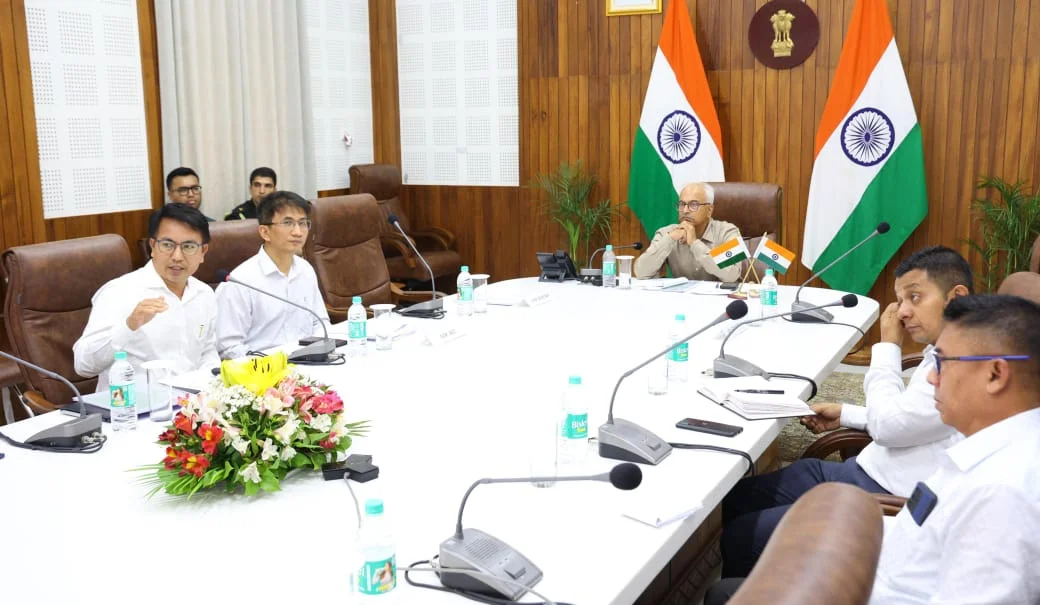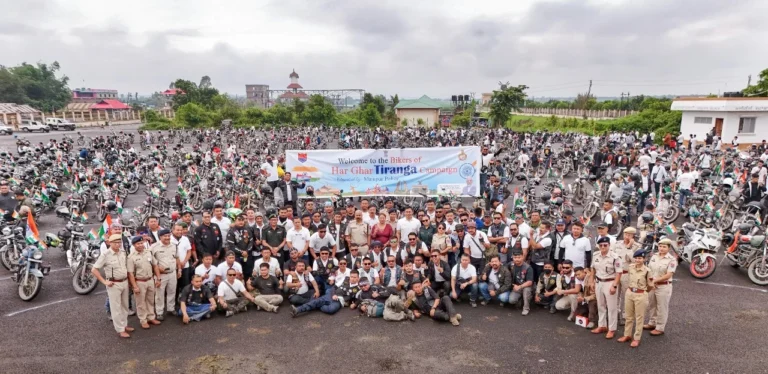Manipur’s Urban Makeover: Trash, Taxes, and Transparency
Summary
Manipur Governor Ajay Kumar Bhalla, in a high-level meeting at Raj Bhavan, urged immediate urban reforms focusing on scientific solid waste management and transparent property taxation. He emphasized the adoption of GIS-based property tax systems, stronger inter-departmental coordination, and public awareness campaigns to boost community engagement—essential steps toward sustainable city development and enhanced trust in municipal governance.
Introduction
Hey there! Ever noticed how some cities seem to effortlessly sparkle with cleanliness, efficient services, and smart upkeep? They don’t happen by chance—underneath that gleaming facade are strategies in motion: reforms, tech upgrades, and public involvement. Manipur, a beautiful Northeast state, is now stepping onto that path. Recently, Governor Ajay Kumar Bhalla strongly urged swift urban reforms. His agenda? Solid waste reshaping and tax transparency via GIS. Sounds daunting? Not to worry—I’m breaking it down step by step, in a fun, easy-to-understand way.
1. Why Reform Now: Waste Woes & Tax Transparency
Waste Management: Not Just a Bin Problem
Picture this: back-alley piles, overflowing bins, streets smelling like a compost heap. Sounds familiar? That’s the sad scenario in many cities, and Imphal’s no exception. But here’s the rub—it’s more than just ugly or smelly. Poor waste handling raises health risks, invites pests, and even harms local rivers and wildlife. To truly lift Imphal’s quality of life, scientific solutions—like segregating, recycling, composting—are non-negotiable. Governor Bhalla was crystal clear: stop sweeping problems under the rug.
Property Tax: The Hidden Revenue Stream
Then there’s a tricky matter—the nearly invisible income from property tax. Many cities don’t capitalize on it—even though it’s arguably the most stable and fair source of municipal funds. Right now, Imphal hasn’t rolled out a comprehensive property tax system. Without it? Municipal budgets flounder, infrastructure suffers, and too much reliance falls on unpredictable grants. Governor Bhalla emphasized that adopting a GIS-based, transparent property tax system can fuel better services and rekindle citizen trust.
2. Anatomy of the Reforms: A Step-by-Step Blueprint
A. Scientific Solid Waste Management
1. Waste Segregation at Source
Think of segregating your waste—kitchen scraps, plastics, paper—all in separate containers. With clear bins and signages, the system becomes manageable. In Imphal, campaigns will guide households and businesses to do just that. Simple, but impactful.
2. Efficient Collection Systems
No more haphazard pickups. Scheduled routes, automated garbage trucks, maybe even RFID tag tracking. The focus? Efficiency and accountability.
3. Processing Over Dumping
Preach reduce and recycle. Compost organic waste, repurpose plastic, treat construction debris responsibly. The e-pao report traces this path already.
4. Enforcement and Awareness
Rules are one thing, follow-through is another. Strict enforcement must be paired with public education—campaigns, workshops, maybe even clean-city contests. The aim? Make citizens proud participants.
FAQs
1. What is scientific solid waste management?
It refers to a structured waste-handling system—starting from source segregation (organic, recyclable, non-recyclable), efficient collection, processing (composting or recycling), and safe disposal or reuse—using data-driven methods instead of ad-hoc dumping.
2. How does GIS help with property tax?
GIS maps every property with geolocation and area data. City officials use this to calculate property value transparently, share digital tax bills, and allow owners to check or appeal—preventing manipulation and boosting fairness.
3. What challenges might Manipur face implementing these reforms?
Expect tech hurdles, resistance to change, budget constraints, and inter-department tensions. But with political will, training, and citizen engagement, these can be addressed.
4. How soon will citizens feel the change?
Visible improvement in waste collection and street cleanliness could show in months. Property tax systems may take a year or more to fully roll out, depending on GIS mapping and public outreach.
5. Can other cities replicate Manipur’s blueprint?
Absolutely. If Imphal succeeds, town administrations across the Northeast can adapt these methods—tailoring to local needs but sharing core strategies: waste segregation, digital tax systems, coordination, and public involvement.



